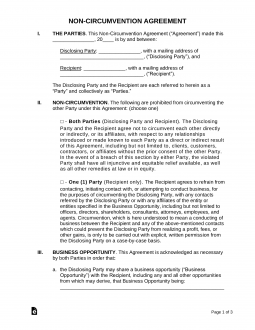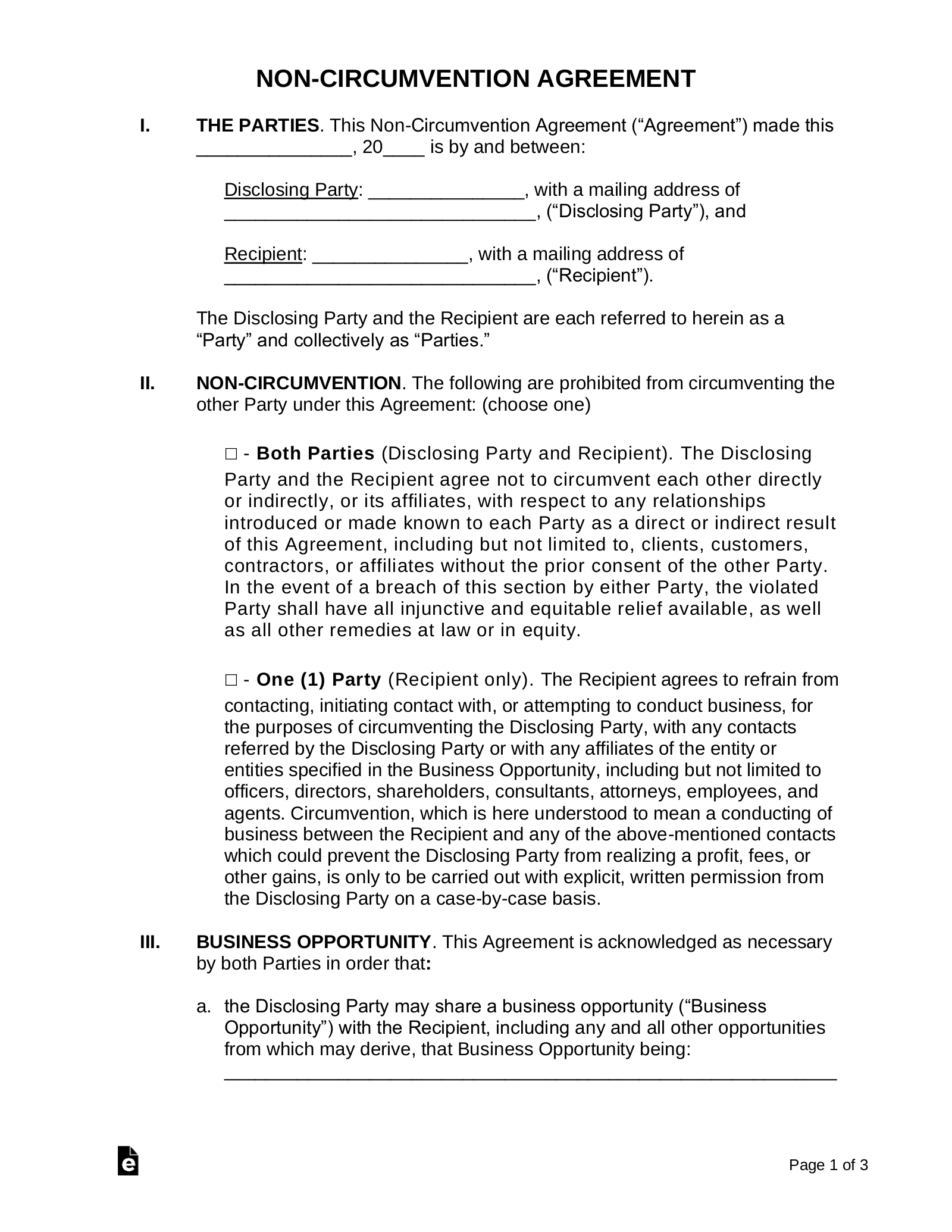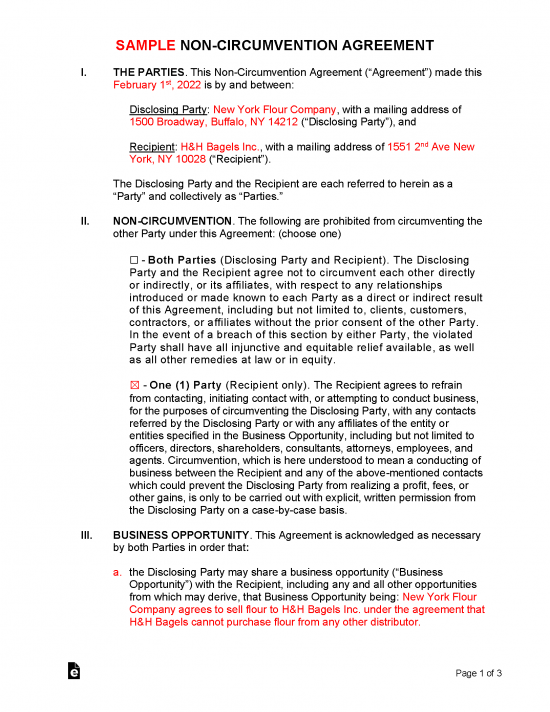Updated August 08, 2023
A non-circumvention agreement protects a party in a business deal from being bypassed or having their work used against them. It commonly includes a non-disclosure clause that prohibits the other party from sharing trade secrets (proprietary information).
Is a Non-Circumvention Agreement Legal?
Yes — a non-circumvention agreement is legal in all 50 states. It does not fall under non-compete laws.
By Type (2)
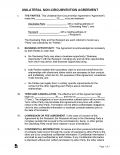 Unilateral Non-Circumvention Agreement – Requires only one party — the recipient of information — to be held liable for circumventing the disclosing party.
Unilateral Non-Circumvention Agreement – Requires only one party — the recipient of information — to be held liable for circumventing the disclosing party.
Download: PDF, MS Word, OpenDocument
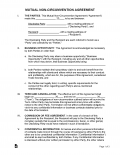 Mutual Non-Circumvention Agreement – Prohibits both parties from circumventing each other for an ongoing business relationship.
Mutual Non-Circumvention Agreement – Prohibits both parties from circumventing each other for an ongoing business relationship.
Download: PDF, MS Word, OpenDocument
Table of Contents |
Differences Between Other Agreements
A non-circumvention is typically used for business-to-business arrangements, while a non-compete is commonly used between an employer and an employee.
| Type of Agreement | Purpose | Legally Enforceable? |
| Non-Circumvention | Prohibits the bypassing of an individual or company in a business deal. | Yes |
| Non-Compete | Prohibits working for a specific competitor or industry. | Yes, except for the states of California, Montana, North Dakota, Oklahoma, and Washington D.C. |
| Non-Disclosure Agreement (NDA) | Prohibits the sharing of proprietary information. | Yes |
Clauses (2)
One of the following two clauses can be added to any type of business agreement:
UNILATERAL NON-CIRCUMVENTION. The Recipient agrees to refrain from contacting, initiating contact with, or attempting to conduct business, for the purposes of circumventing the Disclosing Party, with any contacts referred by the Disclosing Party or with any affiliates of the entity or entities regarding the business opportunity mentioned in this Agreement, including but not limited to officers, directors, shareholders, consultants, attorneys, employees, and agents. Circumvention, which is here understood to mean a conducting of business between the Recipient and any of the above-mentioned contacts which could prevent the Disclosing Party from realizing a profit, fees, or other gains, is only to be carried out with explicit, written permission from the Disclosing Party on a case-by-case basis.
MUTUAL NON-CIRCUMVENTION. The Disclosing Party and the Recipient agree not to circumvent each other directly or indirectly, or its affiliates, with respect to any relationships introduced or made known to each Party as a direct or indirect result of this Agreement, including but not limited to, clients, customers, contractors, or affiliates without the prior consent of the other Party. In the event of a breach of this section by either Party, the violated Party shall have all injunctive and equitable relief available, as well as all other remedies at law or in equity.
Sample Non-Circumvention Agreement
Download: PDF, MS Word, OpenDocument

